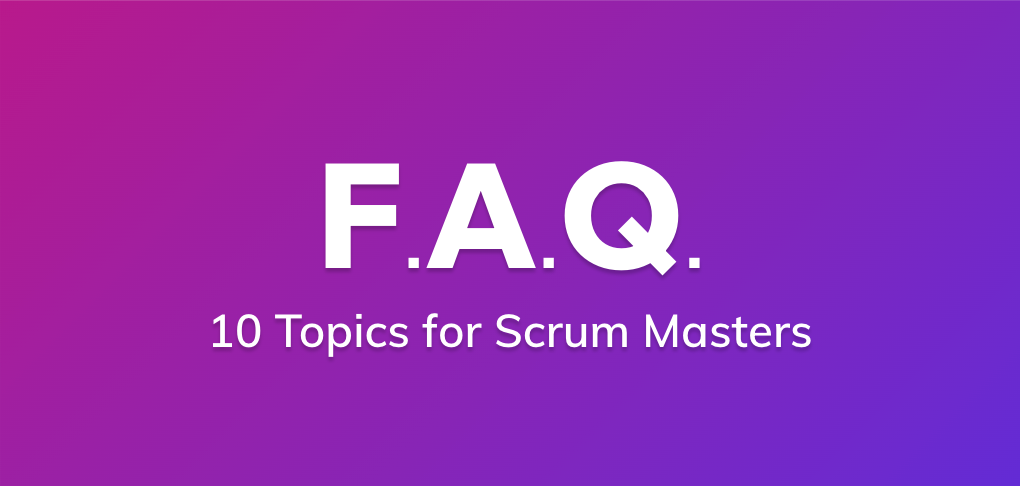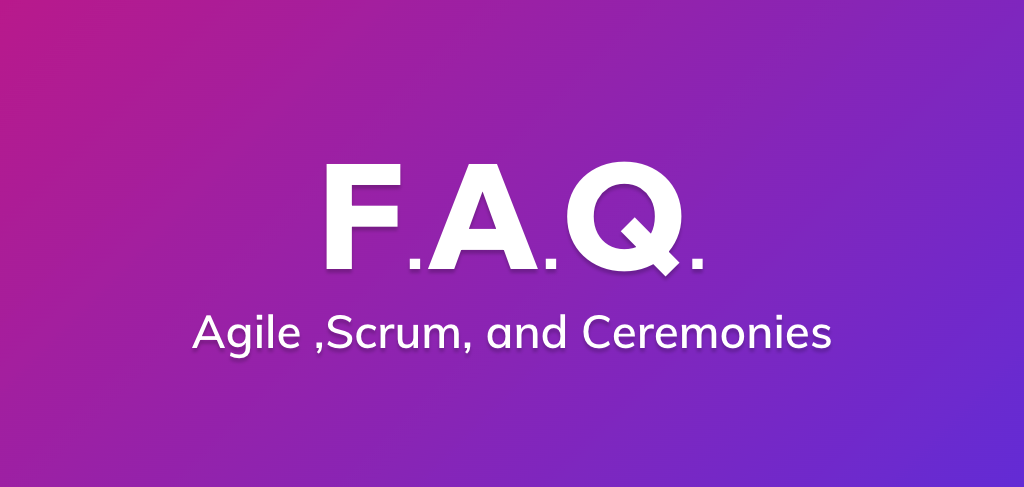
AI Integration With SCRUM: Ensuring Ethical Practices In The Digital Era

In product management, where agility and adaptability reign supreme, SCRUM methodology has established itself as a go-to framework for efficient product development. Moreover, AI has surged to the forefront of various industries, revolutionizing processes, decision-making, and customer experiences.
AI has rapidly revolutionized healthcare diagnostics by enhancing the accuracy and speed of medical image analysis, aiding in early disease detection. Additionally, AI-powered autonomous vehicles transform the automotive industry by using machine learning and computer vision to navigate and make real-time decisions, promising safer and more efficient mobility solutions.
However, bridging the gap between AI and SCRUM teams has its challenges. In this article, you will discover the evolving landscape of AI integration with SCRUM. We will delve into the challenges of this integration, mention the ethical limitations, and offer solutions for a harmonious coexistence.
Challenges in Integrating AI with SCRUM Teams
Lack of AI Expertise within SCRUM Teams
One of the primary obstacles to successful AI-SCRUM integration is the need for more AI expertise within SCRUM teams. Team members may be skilled in Agile practices but might require more know-how to harness the potential of AI.
Organizations should prioritize cross-training and upskilling team members in AI-related concepts to address this issue. Encourage team members to attend workshops and webinars or pursue online courses in AI fundamentals. By fostering a culture of continuous learning, teams can bridge the knowledge gap.
Balancing the Flexibility of SCRUM with AI Project Rigidity
SCRUM is celebrated for its flexibility, allowing teams to adapt quickly to changing requirements. On the other hand, AI projects often require well-defined scopes and structured processes, posing a challenge to SCRUM's dynamic nature.
It's essential to establish clear project boundaries to maintain the flexibility of SCRUM while integrating AI. Define the scope of AI integration and delineate it from other SCRUM activities. This way, teams can embrace AI without compromising their Agile principles.
Integration of AI into Existing SCRUM Processes
Integrating AI into established SCRUM processes can disrupt workflows, leading to inefficiencies and resistance from team members.
Craft custom processes for AI integration within SCRUM, aligning them with existing workflows. Ensure that AI-specific tasks are seamlessly integrated and that team members understand their roles in these processes. This minimizes disruption and fosters smoother integration.
Data Availability and Quality
AI relies heavily on data, and its success hinges on data availability and quality. Therefore, inadequate data can hinder AI projects.
To address this problem, you can incorporate robust data governance practices, ensuring data availability and quality. Establish data collection and validation processes to guarantee that AI models receive the necessary inputs for accurate decision-making.
Data Sharing & Usage from AI-Language Models
While powerful, AI-language models raise ethical concerns about data privacy and security. Several key steps can be taken to address the ethical concerns surrounding AI-language models and data privacy/security:
Classify Your Data Based on Sensitivity: Start by categorizing your data into sensitive and non-sensitive categories. This step helps identify what data can and cannot be shared or utilized by AI models. By protecting sensitive information, you can mitigate potential privacy risks.
Anonymize or Pseudonymize Data: Before feeding data into AI models, consider anonymizing or pseudonymizing it. This process removes or replaces personally identifiable information, adding an extra layer of privacy protection while allowing valuable insights to be extracted.
Review AI Providers' Policies: Carefully scrutinize AI providers' terms of service and data usage policies. Ensure they align with stringent data protection requirements and prioritize user privacy. This step is crucial in selecting trustworthy partners for AI-related endeavors.
Employee Training: Educate your employees on data security best practices, emphasizing the importance of handling sensitive data responsibly when working with AI models. Awareness and adherence to security protocols are vital in preventing data breaches.
Choose Reputable AI Providers: Opt for AI providers with a proven track record in data security. Research their history, customer reviews, and any previous incidents related to data breaches. Partnering with reputable providers reduces the risk of data security lapses.
Incident Response Planning: Develop a comprehensive incident response plan to detect and respond to data breaches or unauthorized access swiftly. This proactive approach ensures that any security incidents are addressed promptly, minimizing potential harm.
Limitations of Integrating AI with SCRUM Teams
Uncertainty in AI Project Outcomes
AI projects are often uncertain in terms of outcomes and timelines. Therefore, it's vital to establish clear success metrics and project milestones upfront. Regularly reviewing progress against these benchmarks allows for course corrections as needed, ensuring the project remains aligned with its objectives and timelines. This adaptability enhances the project's chances of success in the face of uncertainty.
Complex AI Product Management
Managing AI projects often presents intricate challenges that can potentially overwhelm SCRUM teams. To address this, it's advisable to designate a dedicated AI product manager or product owner with the specialized expertise needed to navigate the complexities of AI initiatives successfully.
This individual should have a deep understanding of AI technologies, data management, and the unique intricacies involved in AI development. Their role is pivotal in coordinating the various aspects of AI projects, ensuring alignment with organizational goals, and facilitating effective communication among team members, thus enhancing the prospects of project success.
Scalability and Resource Constraints
Scaling AI initiatives can significantly strain an organization's resources and budgets. A recommended solution is to adopt a phased approach to AI integration while incorporating robust resource planning.
Organizations can strategically allocate resources and manage costs more efficiently by implementing AI initiatives in well-defined phases. This incremental approach enables the organization to expand AI capabilities gradually, aligning with its evolving readiness and the availability of resources. Consequently, it promotes sustainable and cost-effective AI adoption, better aligned with the organization's capacity and objectives.
Regulatory and Ethical Considerations
Integrating AI within the SCRUM framework demands strict adherence to regulatory and ethical guidelines, which can prove challenging. To successfully navigate these complexities, it is essential to incorporate compliance checks directly into SCRUM processes.
By doing so, organizations can systematically ensure that AI projects align with the regulatory and ethical requirements at every stage of development. Assigning specific responsibilities for compliance monitoring and reporting within the SCRUM team fosters accountability and transparency, ensuring that regulatory and ethical considerations remain integral components of AI integration efforts. This proactive approach safeguards against potential risks and legal complications, promoting responsible and compliant AI implementation.
Strategies for Successful AI-SCRUM Integration
For a successful integration of AI into SCRUM teams, several key strategies can be considered:
Blend AI with Agile Development: Seamlessly integrate AI with Agile development practices to foster a synergistic workflow. This approach ensures that AI complements SCRUM methodologies' iterative and collaborative nature.
Regular AI Involvement: Make AI an active and consistent participant in team meetings and processes. Maintain transparency by openly sharing how AI influences decision-making and contributes to project advancement, enhancing team understanding and trust.
Continuous Learning: Enable AI models to learn and adapt from team interactions securely. This ongoing learning process enhances AI capabilities over time, making it more effective and aligned with the evolving needs of the SCRUM team.
AI Integrations in Team O'Clock
Unlock the full potential of your SCRUM meetings with AI-Assist, brought to you by Team O'Clock. We understand the importance of efficient retrospective and planning poker sessions for your team's success.
AI-Assist is your partner in streamlining these meetings, automatically grouping notes, suggesting action items, and delivering comprehensive summaries. But that's just the beginning. Our vision is to empower SCRUM teams like yours continually. We have an exciting roadmap ahead, with plans to enhance daily SCRUM ceremonies and expand AI-Assist's capabilities.
Join us on this journey towards more productive SCRUM experiences! Dive into the blog to explore the possibilities.
Takeaway
In conclusion, integrating AI with SCRUM presents challenges and limitations, such as data privacy and regulatory compliance. However, recognizing that one size does not fit all, it's vital to adopt tailored solutions that align with each organization's unique needs. The synergy between AI and SCRUM offers a competitive advantage, enhancing productivity and innovation.
As we look ahead, the landscape of AI and SCRUM collaboration is continually evolving, promising exciting opportunities and innovations in the future. Businesses that embrace this partnership stand poised to thrive in the dynamic world of technology-driven project management.

The meeting facilitator
for your remote teams
Efficiency, collaboration, and speed
with AI-assisted retrospectives, daily standups, and planning poker meetings.







